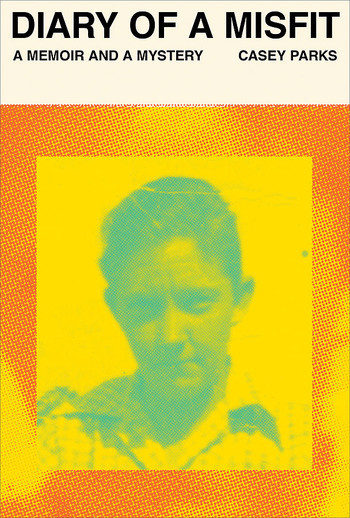Casey Parks ’18JRN never expected that coming out to her family would be easy. So it wasn’t much of a surprise when the pastor of her Pentecostal church asked God to kill her in front of the entire congregation, or when her mother sent her an e-mail saying that Parks made her want to throw up. But what she never could have imagined was support from her grandmother, a “tough, foul-mouthed” woman from the tiny town of Delhi, Louisiana, who quietly revealed to Parks that she had grown up across the street from “a woman who lived like a man.”
Parks first learned about Roy Hudgins in 2002, long before trans rights were on the political agenda or pronouns appeared in anyone’s e-mail signatures. At that time, she was a college student in Jackson, Mississippi, trying to reconcile the feeling of kissing a girl for the first time with her Bible Belt upbringing. She was curious about Roy — who mowed lawns and played country music and who, her grandmother confided, had once been the most important person in her life. “Everyone loved Roy, because he was a good, Christian person,” Parks’s grandmother said. That resonated deeply, writes Parks. “I wanted to believe that people would accept me just because I was good.”
Parks didn’t have room in her life then for anyone’s story but her own. But seven years later, after moving to the “lesbian paradise” of Portland for a dream job as a reporter for the Oregonian, Parks decided to make good on a promise to find out what had happened to Roy, with whom her grandmother had lost touch in the 1950s. “Roy gave me a reason to call my grandmother. He gave me a reason to go home.”
Parks was too late; during those seven years, Roy had descended into dementia and died. But over the next decade, Parks made dozens of trips back to Delhi (pronounced “DELL-high”), talking to everyone she could find who had known him. Eventually, those trips became her first book — an astounding blend of journalism and memoir that paints a moving portrait of not one but two misfits and of the places they called home.
On her trips to Delhi, Parks learned of the dark mysteries bookending the quiet life of Roy Hudgins. The first was about his origins: Roy was raised by an adoptive couple who had always dressed him as a boy. Could that be because they had kidnapped him from an abusive family and needed to keep him in disguise? The second was about his death in a Delhi nursing home, a place where he was tragically misunderstood (a story about the staff putting him in a pink sweatsuit breaks Parks’s heart, and ours). How did he really die?
Parks grapples with these unknowns, trying to determine whether Roy’s identity was driven by nature or nurture and whether his community betrayed him in the end. But these mysteries are not what drives Parks’s reporting or this remarkable book. Rather, the most poignant questions she asks are the simplest — stand-ins for her own fears and anxieties. Was Roy happy? Did his life have meaning? Did he have people who loved him?
And so, as we learn about Roy, we also learn about Parks. About her deeply complicated relationship with her mother, Rhonda Jean, a brilliant woman tormented by the suicide of her first love and ruined by her addiction to a potent opioid nasal spray. About the church that was a refuge until it wasn’t. About how she sometimes felt too gay for Louisiana but too Southern for Portland. About her lifelong fear of being alone, until she found someone who quieted it. “Maybe something would always be missing,” writes Parks. “But I could patch those holes by creating a new and better life.”
When Parks started traveling to Delhi, she hoped that the project might end up as a podcast or radio story. Then she befriended two filmmakers and began bringing them along on her trips to Louisiana, thinking that it might become a documentary. But in 2017, Parks started a journalism program at Columbia, where her mentor, New York Times journalist Andrea Elliott ’99JRN, recommended that Parks apply for Samuel Freedman’s legendary book-writing class.
How lucky we are that she did. Parks’s prose is honest, vulnerable, and beautifully rendered. At one point in the book, Parks sits at a gay bar in her college town of Jackson and wonders if Roy ever felt the sense of community that she felt there. “As far as I could tell, he never had any role models to show him how one moves through life as a misfit.” With this book, Parks becomes what Roy always needed — a hopeful voice for anyone who feels like they don’t belong.



